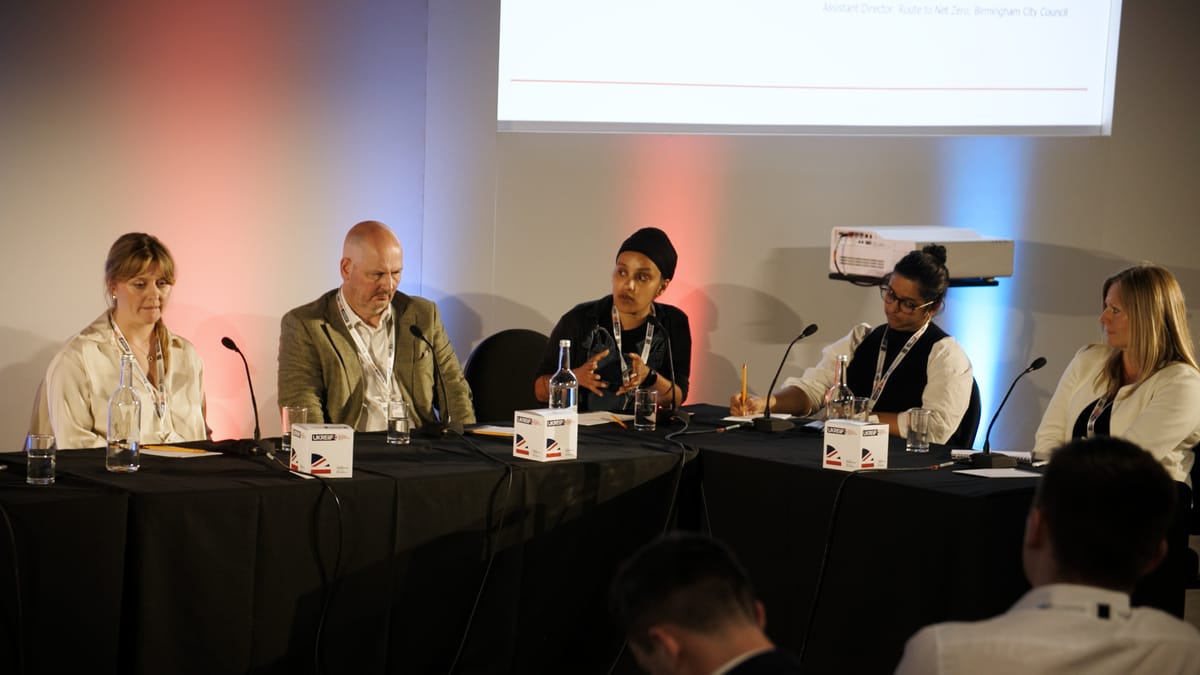Neighbourhood Led Retrofit

Transforming Balsall Heath: A Community-Led Retrofit Revolution
In the heart of Birmingham, a groundbreaking project is transforming lives and homes in Balsall Heath. The initiative, spearheaded by the Acivico Group, has retrofitted nearly 700 homes in one of the city's most deprived areas. This effort is not just about enhancing energy efficiency; it's about empowering communities, fostering trust, and creating a model for sustainable living.
A Bespoke Approach to Energy Efficiency
The Balsall Heath project stands out because it didn't adopt a one-size-fits-all methodology. Each home received tailored interventions to maximize energy efficiency. "It wasn't the case of copying one property to the next and putting everything the same," explained Jenny Ludford from Acivico's PR consultancy. This individualized approach ensured that each household's specific needs were met, leading to significant improvements in energy performance.
Engaging the Community
Community engagement was at the heart of this initiative. Over 50 energy cafes were held, where residents could learn about energy efficiency and the benefits of retrofitting. "We had to translate that into Punjabi or Mirpuri... and also into Arabic," highlighted Tasawar Bashir, Media Producer and Writer at MECC Trust. This inclusive approach ensured that language barriers were overcome and trust was built.
"There are over 100 processes... the specification changes every six months," Ying Man Principal Project Manager at Acivico Group
Community Events Enhanced Engagement Across Birmingham in Retrofit
Ying Man, Principal Project Manager at Acivico Group, emphasized the importance of local trust. "People in that community trust their people... they don't understand what Acivico stands for." By involving trusted local figures, the project successfully engaged a diverse community, many of whom were initially skeptical about retrofit initiatives.
Challenges and Solutions
The project was not without its challenges. The PAS 2035 compliance process, a rigorous set of standards for retrofitting, was described as cumbersome. "There are over 100 processes... the specification changes every six months," said Man. This complexity can deter smaller contractors from participating, highlighting the need for streamlining and simplification.
Moreover, the term "retrofit" itself posed a communication challenge. "Retrofit is a difficult language," admitted Man. Many residents initially thought it referred to fashion rather than home improvements. To counter this, the project focused on simpler terms like "home upgrades" and "energy efficiency measures."
Legacy and Impact
The impact of the project has been profound. "We increased EPC ratings of 75% of homes by at least one band," reported Man, noting the significant improvements in energy performance. Beyond the numbers, the project has left a lasting legacy. Local residents were trained as Energy Champions, ensuring that the knowledge and benefits of the project continue to spread even after its completion. "That's the legacy we left for them," Man proudly stated.
The project's success is also measured in terms of carbon savings, equivalent to planting over 16,673 oak trees annually. These environmental benefits are crucial as Birmingham strives to meet its net-zero targets by 2030.
The Need for Systemic Change
"The retrofit system is very broken,"
While the Balsall Heath project is a shining example, it also highlights the broader systemic issues within the retrofit sector. "The retrofit system is very broken," lamented Ellie Horwitch-Smith, Assistant Director at Birmingham City Council. She pointed to the need for consistent funding and support to avoid the stop-start nature that currently plagues many initiatives.
Daniel Camp, Head of Retrofit at Dodd Group, echoed this sentiment, emphasizing the need for a stable investment in training and employment. "We need 3, 4, 5, 6 years worth of constant revenue... then we can invest in communities," he stated, underscoring the importance of long-term planning and support.
Building Demand and Trust
For retrofit initiatives to succeed on a larger scale, public understanding and demand need to be cultivated. "We need to get the message out to everybody in the UK that retrofit is a thing," urged Camp. This involves a concerted effort to demystify retrofit and make it accessible and appealing to the general public.
Ellie Tay from the UK Infrastructure Bank emphasized the importance of narrative. "We need to focus on the why and the incentives... it's going to improve your quality of life," she said. By framing retrofit in terms of tangible benefits like cost savings and improved living conditions, the project aims to build broader support and participation.
Looking Forward
The Balsall Heath project offers valuable lessons and a hopeful model for future initiatives. It shows that with the right approach—one that is community-led, inclusive, and supported by clear communication—significant progress can be made. However, it also underscores the need for systemic changes to ensure that such projects can be scaled up and sustained over the long term.
"Retrofit is at the heart of the biggest societal transition we will see in our lifetimes."
Imandeep Kaur, Co-Founder of CIVIC SQUARE, captured the broader vision succinctly: "Retrofit is at the heart of the biggest societal transition we will see in our lifetimes." This project is a testament to what can be achieved when communities come together with a shared vision for a sustainable future.
Presentation of The Retrofit Principles From CIVIC SQUARE
The Balsall Heath retrofit project is more than just an energy efficiency initiative; it's a blueprint for community-led transformation. By addressing the unique needs of each household, engaging local communities, and fostering trust, this project has set a new standard for what can be achieved.
The lessons from Balsall Heath will be invaluable in guiding broader efforts to achieve our net-zero goals. They offer a new, better example of engagement and action than seen before.
